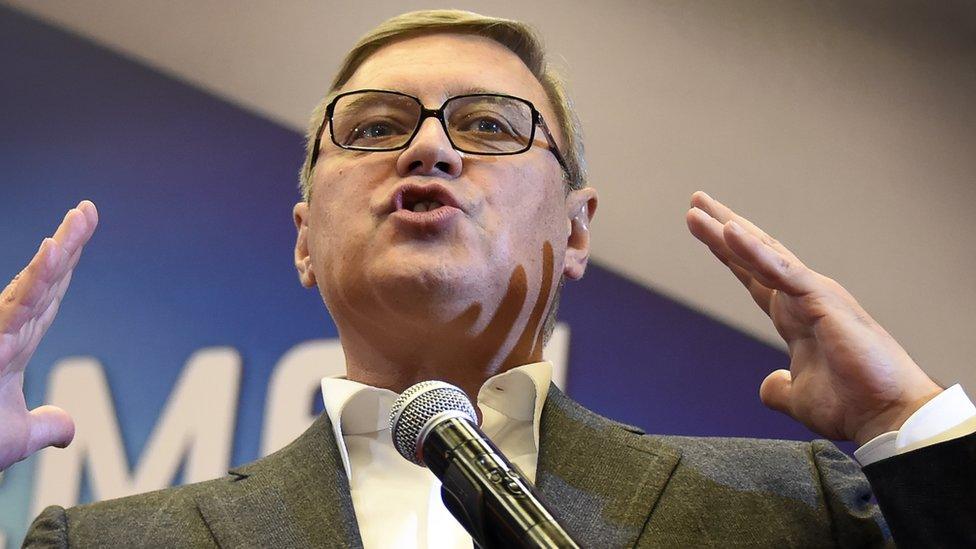Russian media breaks Putin family taboo
- Published
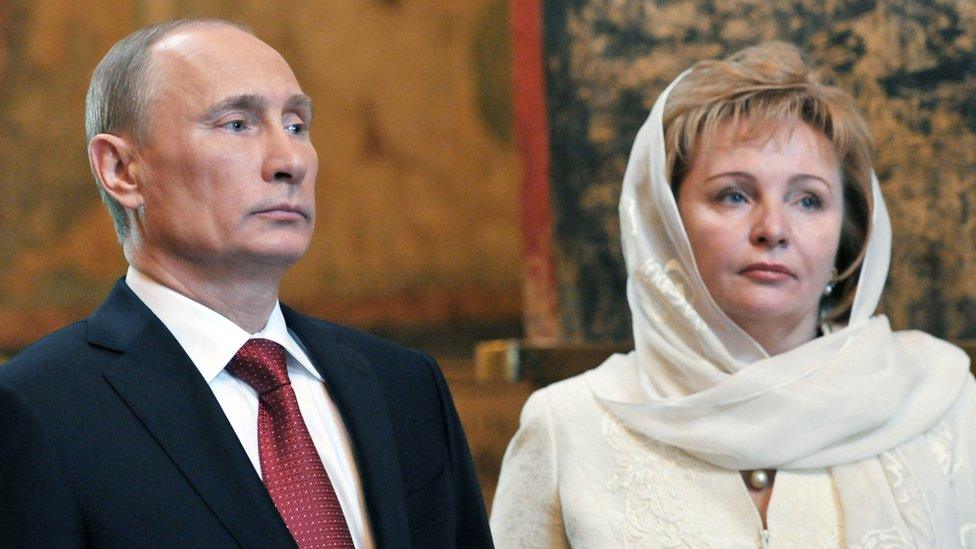
Vladimir Putin divorced his wife Lyudmila in 2014
Russian President Vladimir Putin likes to cultivate the image of a tough national leader and macho man.
It is an image that has left little room for Mr Putin the family man. In fact, reporting on his family has been virtually taboo in Russia.
But that silence is now being broken, as media publish unauthorised material about Mr Putin's daughters and his ex-wife, Lyudmila.
Some of the reports have added to accusations of cronyism against Mr Putin. They have also led to speculation that the president may be losing his powers of image-control.
As the anti-Kremlin magazine The New Times noted, "sources have started to talk".
Cosmopolitan lifestyle
In 2012, to mark his 60th birthday, Mr Putin allowed state-controlled NTV into his inner sanctum. It showed him working late, alone in his office, then eating a healthy breakfast and exercising in his private gym.
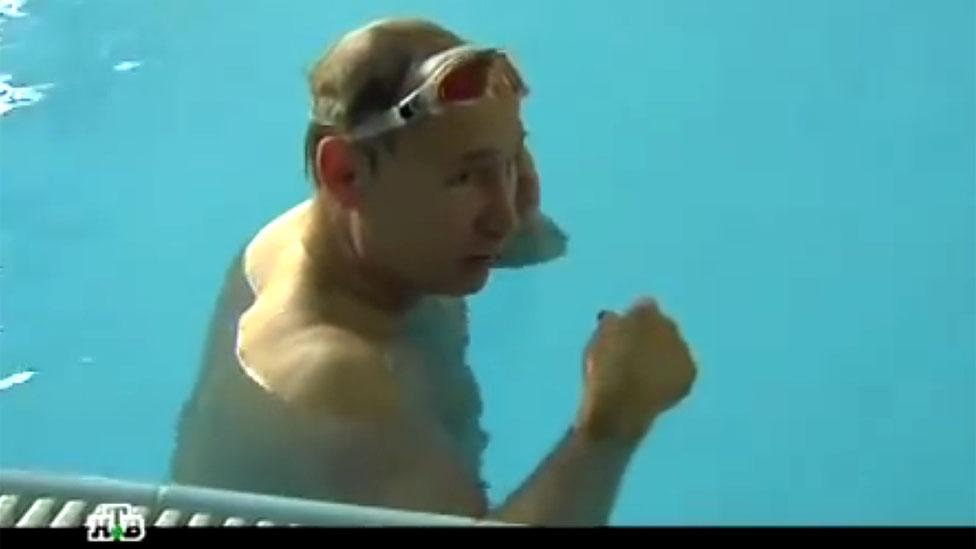
Vladimir Putin was filmed by Russian station NTV exercising and relaxing
But there was no sign of his family. In fact, his only personal companion seemed to be his black Labrador dog.
In the years before her divorce from Mr Putin in 2014, his then wife Lyudmila disappeared from public view almost completely.
Mr Putin's daughters have also been shrouded in secrecy.
But now more details of their professional and private lives appear at last to be coming into the public domain.
On 1 February, The New Times published evidence , externalsuggesting it had tracked down Mr Putin's elder daughter, Maria, to an elite apartment block in Moscow. It said she lived there under an assumed name.
The evidence also suggested she held an academic post at a state endocrinology centre, it said.
The report repeated earlier rumours that she was married to a Dutchman and it also said that she appeared to have given birth to a daughter.
Based on observations from social media, The New Times suggested that Maria led a cosmopolitan lifestyle, enjoyed foreign travel (including on luxury yachts) and had a wide range of European friends.
Displeasure
Around a year ago, Mr Putin's younger daughter, Yekaterina, was outed in the Russian media as Katerina Tikhonova, the head of Innopraktika, a project at Moscow State University that supports young scientists, and which is said to enjoy the support of officials close to Mr Putin.
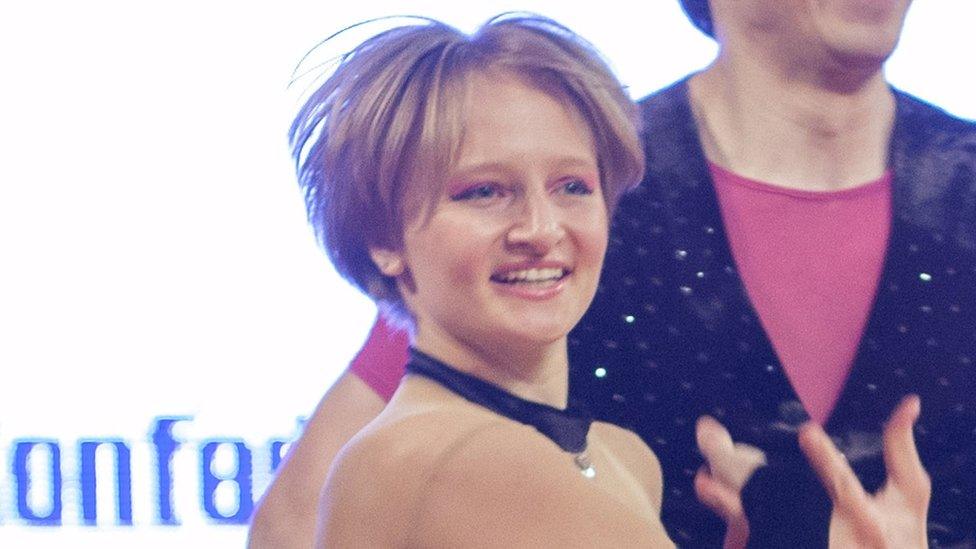
Katerina Tikhonova participates in rock 'n' roll dancing competitions
In December, Reuters news agency reported , externalthat Ms Tikhonova had married Kirill Shamalov, the son of one of Mr Putin's associates from St Petersburg.
Reuters said that following their marriage, Mr Shamalov had greatly increased his wealth, including through the acquisition of shares in a petrochemicals company part-owned by another Putin associate.
Kremlin spokesman Dmitry Peskov denied there was anything improper in Mr Shamalov's business dealings. He also repeated his usual response to reports about Mr Putin's family: "We do not give comments on the private lives of Putin's close relatives."
Official displeasure at reports about Mr Putin's family may also take other forms.
Last month, a current affairs programme on NTV, shown originally in the Russian Far East, repeated well-documented reports that Mr Putin's ex-wife had remarried.
But by the time the programme was shown in the Siberian and Moscow time zones the bit about the former Mrs Putin had disappeared.
State pressure
The New Times, meanwhile, has received a warning from the state media regulator.
The warning was about a reference to a Ukrainian nationalist group banned in Russia - but it arrived on the day the article about Mr Putin's daughter appeared.
According to editor Yevgenia Albats, on the same day the magazine was also the target of a powerful cyber attack.
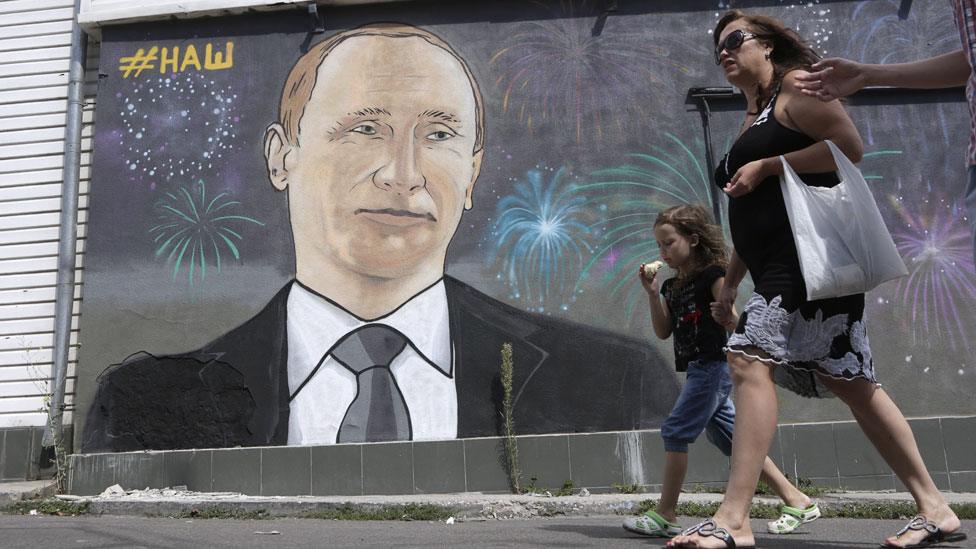
A pro-Russian street mural in Simferopol, Crimea, which was annexed by Russia in 2014
Sensitivity about coverage of Mr Putin's private life was also evident in the strong state media reaction to a recent BBC Panorama film that highlighted allegations of corruption against him.
Mr Putin and his circle have come under particularly intense international scrutiny since Russia's intervention in Ukraine in 2014. A number of his closest associates have been targeted by Western sanctions, but Mr Putin himself has not been blacklisted.
BBC Monitoring reports and analyses news from TV, radio, web and print media around the world. You can follow BBC Monitoring on Twitter, external and Facebook, external.
- Published26 January 2016
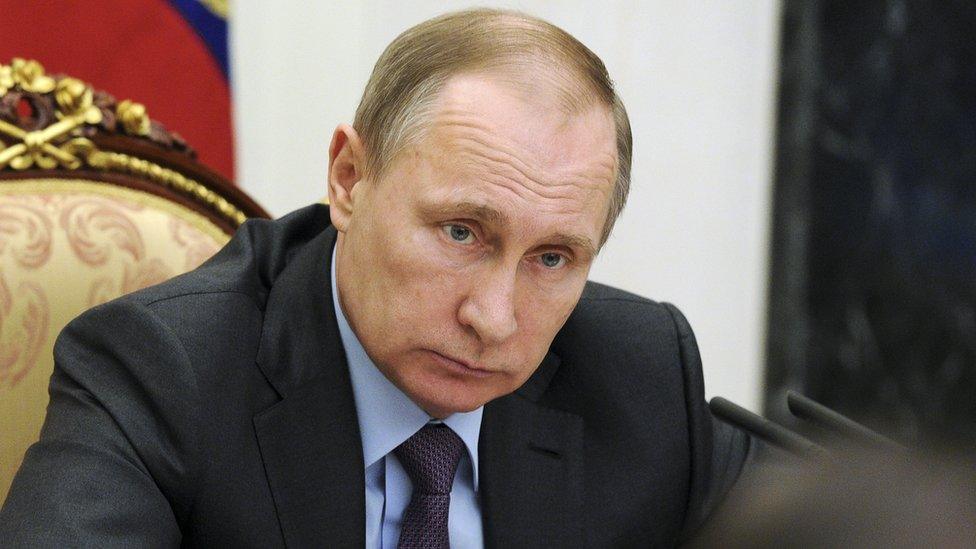
- Published17 March 2024
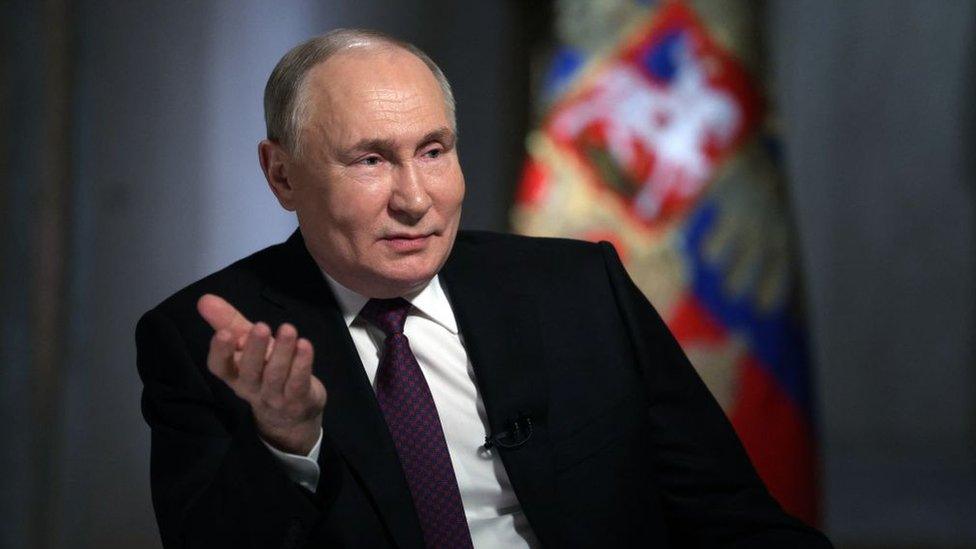
- Published2 February 2016
